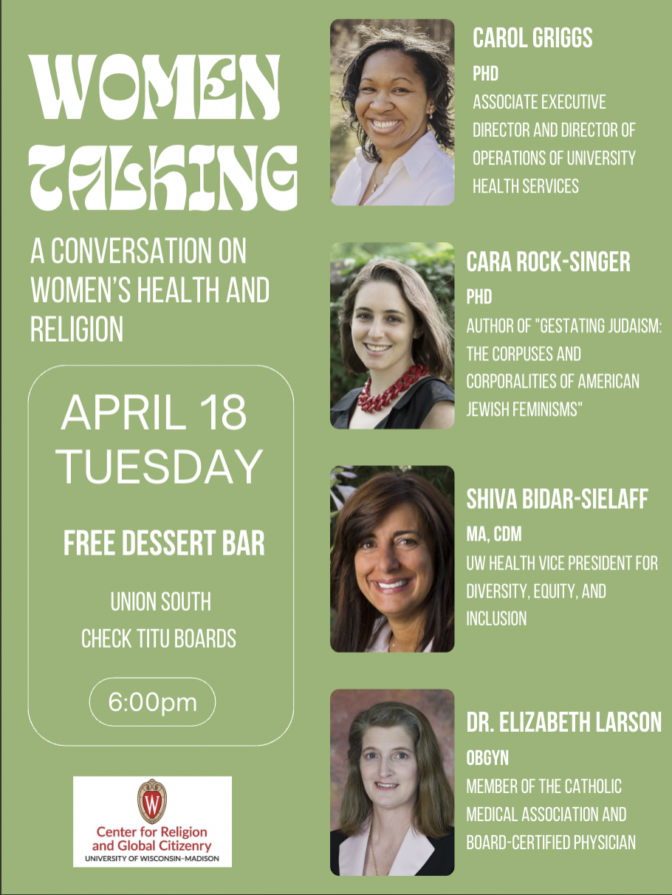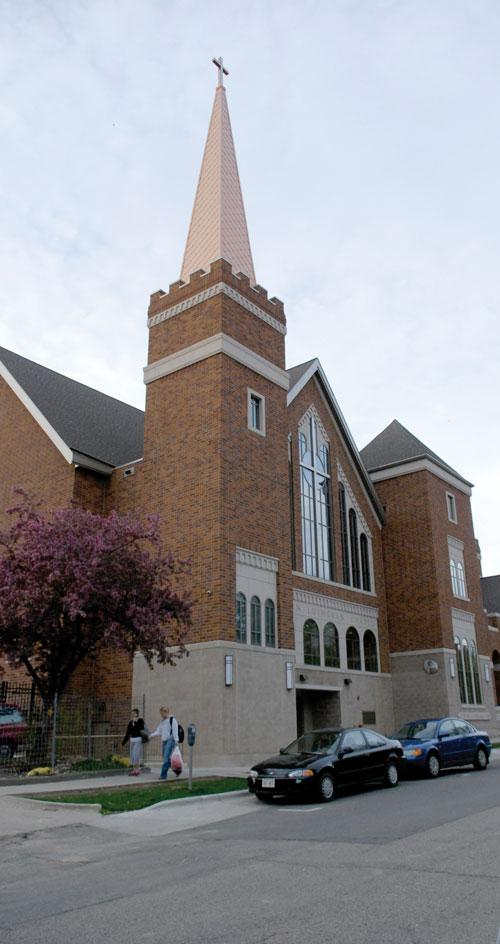The University of Wisconsin is working to grow the discussion of religious pluralism on campus and increase opportunities to communicate across boundaries of faith through the Center for Religion and Global Citizenry, according to the Center’s website.
The goal of CRGC is to recognize the importance of students’ religious identities on campus and to help students learn about religion beyond what they personally practice, according to Senior Interfaith Fellow Jaime Wendt.
“It’s important to have that religious literacy piece and to have appreciative knowledge of religion that’s a part of other people’s culture and individual identity…that’s the work of a lifetime,” Wendt said.
For example, the Multicultural Student Center, Muslim Student Association and the CRGC hosted an Interfaith Iftar March 30 to share a meal and learn about productive interfaith communication, according to the event posting.
The Center, which opened in 2017 after the closing of the Lubar Institute for the Study of Abrahamic Religions, aims to become a hub for interfaith discussion and religious pluralism for all undergraduates, graduates, faculty and community members, according to the CRGC website.
The CRGC holds a series of public programs for external outreach to get students to get involved with religion on campus. This year, the group plans to host an event focused on religion and women’s healthcare. The event will feature a panel of experts from the Madison area, including healthcare providers and scholars, that each have their own faith practices, Wendt said.
The panel will touch on topics of reproductive justice, religious literacy and diversity when providers help patients and disparities in the healthcare system, according to Wendt. This event will take place Tuesday, April 18.

The CRGC also works in collaboration with other campus interfaith groups, like the University Religious Workers organization. The group is a professional association for leaders from different ministries on campus to collaborate on topics related to campus faith. URW acts as a liaison between University leaders and religious leaders, according to URW’s website. The organization currently includes 14 different UW religious groups.
“The season of life that is college years is an opportunity for individuals to investigate and to claim faith for themselves, where in the past they may have been brought up in a system that they loved or they hated, or no system whatsoever, ” URW Vice President of Finance and Membership Rev. Bobbi Kraft said. “It’s a time for them to reach out and see what makes sense for them, how they hear God’s voice.”
URW’s purpose is to bring together the members and leaders of various campus ministries and allow them to collaborate with one another. The members inform each other of their upcoming events and programs too, Kraft said.
“Because we meet together and build relationships over lunch while raising questions and talking with one another, we also share information with one another,” Kraft said.
According to Kraft, the leaders often build relationships, raise questions and share information over lunch.
“We’re all on the same block and so we keep each other notified of things that are happening in the neighborhood,” Kraft said.
The group also works in collaboration with UW officials. The group invites university staff and faculty to be guest speakers at their events, according to the URW website.
This past summer, for the first time in the group’s history, the organization was invited into the UW SOAR program, where they were able to talk to incoming students and their families about religious opportunities on campus, Kraft said.
URW has also done work with the university involving the mental health of students, as spiritual lives are often a component in supporting students, Kraft said.
Wendt also said mental health and spiritual health go together and that by serving spiritual health, religion can really help a person ease a mental health crisis.
“The university has taken a focus on supporting the whole being, they have enabled us to participate in new ways that we haven’t been able to participate before, ” Kraft said. “This is still a new road for all of us, both a secular institution and a societal institution and faith programming. Because the university is looking at the wholeness of students, they have invited us to come to the table and they come to our table to find out how we can be in communication with one another.”
Hillel’s Student Leadership Delegation visits Israeli, Palestinian territories
Kraft said the university’s collaboration with religious organizations is an area that is under development and that the URW recognizes the university’s efforts to support students in ways they had not focused on before.
It’s important to keep communication open and have both the sides of the university and campus ministries ask how we can work better together, Kraft said.
Went said that some students don’t feel comfortable joining religious student organizations if they do not completely agree with the group’s political viewpoints, Went said.
“I’ve heard from some students recently that they were of a particular faith orientation, but didn’t feel welcome … because they weren’t like a hundred percent on board with some of the political standpoints of that organization.” Wendt said. “They wanted to express that their faith was an important part of their identity, but they didn’t feel they’d be welcome in that student center or not fully welcomed.”
Wendt said the CRGC be a great place for someone is looking for a nuanced place to express their religious beliefs without fear of judgement.


